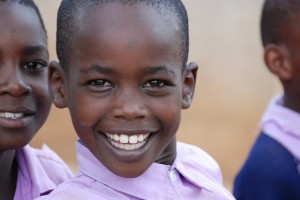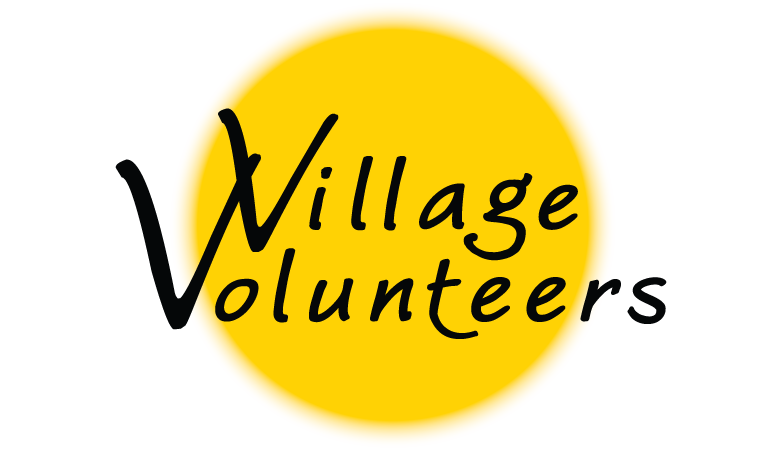 Common Ground is a program that operates near the border of Uganda. This area was also hit hard by AIDS as it became a main trucking thoroughfare, which in turn brought prostitution, during the industrialization of Africa.
Common Ground is a program that operates near the border of Uganda. This area was also hit hard by AIDS as it became a main trucking thoroughfare, which in turn brought prostitution, during the industrialization of Africa.
The program has many projects including the operation of a well-respected primary school with over 200 students, widow assistance through micro-enterprise development, and the teaching of useful farming techniques to maximize food production and income generation. The farming techniques are also part of the school curriculum and the children operate a garden on the school grounds.
Again I was greeted wtih song as I entered the grounds of the primary school. The kids were all assembled to entertain with not only singing but also ethnic dancing and poetry recitation. At the end of the ceremony, I was asked to plant a tree and you guessed it, the tree is named Wafula.
Joshua, the Program Director, knows everyone and is willing to help anybody with his farming knowledge and business acumen. There are still four deaths a week in the area, and Joshua has devoted his life to helping people at least have food no matter how AIDS has affected them. I met groups of farmers that are being helped by the program. Apparently much knowledge was lost during the British colonization, and Joshua and his crew are forming groups of farmers that wish to learn steadfast techniques so that no piece of any farm remains idle at any time. They teach crop rotation, terracing and tree planting for soil and water conservation, the establishment and maintenance of tree nurseries, ways to improve soil fertility, and income diversification by raising cows, goats, and other animals. The farmers were so proud of their accomplishments that they all wanted me to visit their farms. Joshua and I figured that we must have walked over 25 miles in two days.
I also met with the widows, a vivacious group of recent businesswomen who can apply and receive loans through Common Ground for such businesses as farming, poultry raising, kiosk operation, tailoring, and brick building. Many of these women rejected wife inheritance, a traditional custom whereby the widow is taken on as the second, third, or fourth wife of the deceased man’s brother. Strong and determined to not let that happen, they had the courage to take a risk and start a business in order to raise their family on their own. I visited several of their homesteads where they were so excited to show me what they were doing. None would let me leave their house without a gift so if anybody needs pumpkins, guavas, pineapples, or bananas, please let me know.
And these ladies knew something about marketing. Grace, who operates a tailoring business, wouldn’t let me take a picture until she set up her sewing machine on the porch, hung up her best creations, and then proceeded to put a measuring tape around her neck and pretend to sew. She became a widow at 32 and was left with three toddlers. Her husband’s family put pressure on her to come live with them, but she decided to start a business and was able to build a new home with her income. The group has meetings twice a month at which time they make payments on their loan, and the camaraderie among the women is inspiring as they sing, dance, and greet each other with high-fives and laughter.
– Kieran O’Dowd
